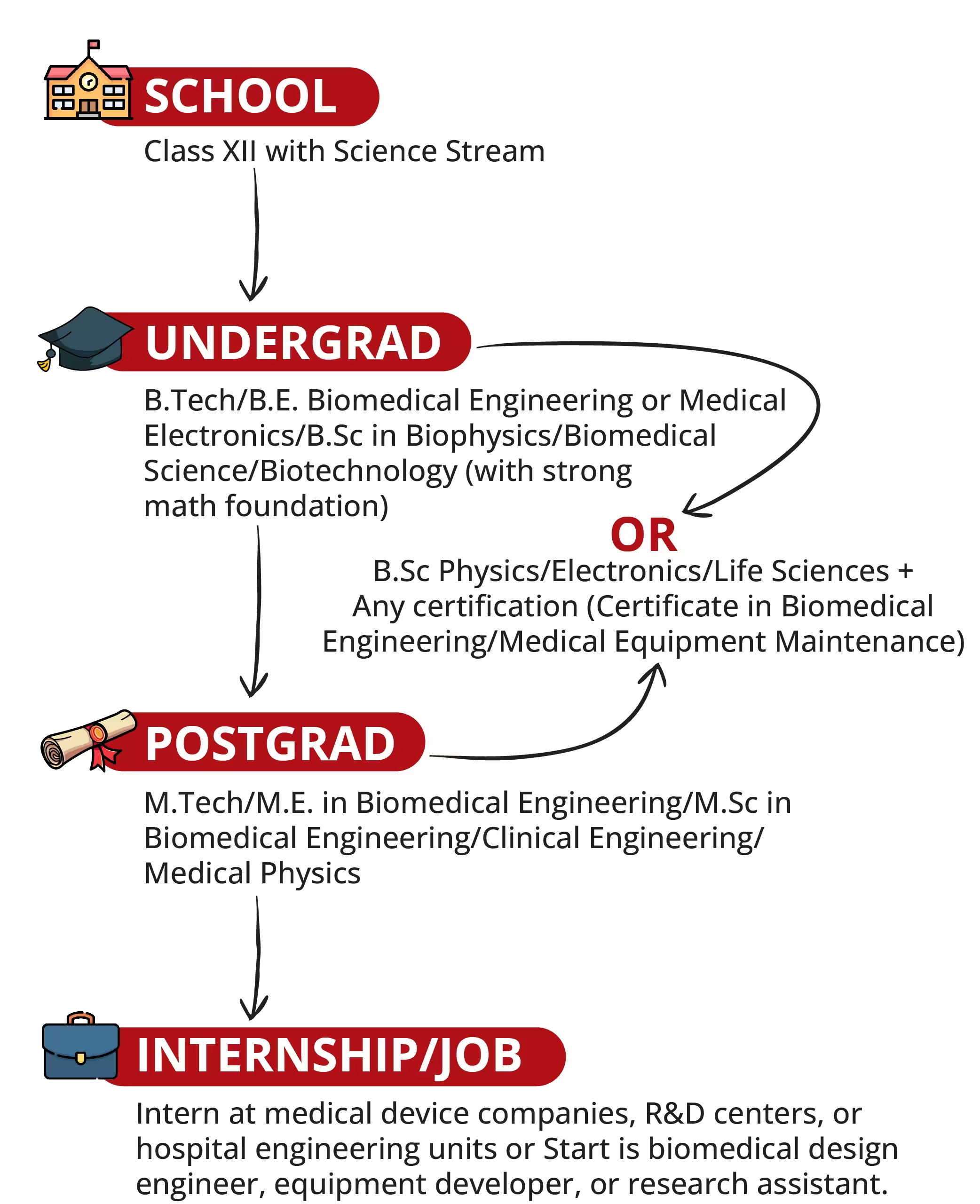

Biomedical Engineering is a multidisciplinary field which is a blend of biology and medicine with engineering. It is that field of engineering which contributes to the medical industry by developing innovative healthcare technologies. It is focused on improving human health and well-being by solving complex medical problems through technical ingenuity. Its scope has rapidly expanded in recent years, offering professionals a dynamic field that merges cutting-edge technology with critical healthcare solutions.
Pioneers who transformed healthcare through groundbreaking advancements in biomedical engineering
Nimmi Ramanujan
She is a renowned biomedical engineer and professor at the Duke University, known for developing low-cost technologies like the Pocket Colposcope and Callascope to improve women’s cancer care globally. She leads the Center for Global Women’s Health Technologies and promotes education and awareness through initiatives like IGNITE and the (In)visible Organ project. Her impactful work earned her the 2023 IEEE Biomedical Engineering Award.
Pallavi Tiwari
She is a biomedical engineering professor at the University of Wisconsin–Madison, develops AI-driven imaging algorithms to improve diagnosis and treatment of cancer and neurological disorders. Her work reduces reliance on biopsies by detecting subtle disease patterns in MRI scans. She’s a Johnson & Johnson STEM2D Scholar and National Academy of Inventors Fellow, recognized for advancing personalized healthcare.
Biswarup Mukherjee
He is an associate Professor at IIT Delhi and AIIMS, contributes to biomedical engineering through innovative rehabilitation technologies, including non-invasive neuromuscular monitoring and biomimetic sensors. His work integrates sensing, signal processing, and embedded systems to improve motor disability care. A PhD from IIT Madras and postdoc at Harvard, he’s recognized with top awards for advancing medical technology.

It is a midway between science and design, making by developing machines like pacemakers, medical imaging systems, drug delivery mechanisms and so on. It is a creative force behind shaping modern healthcare, making earlier detection of disease possible, leaving bandwidth for treatment.
It is a field incorporating not only strong analytical and problem-solving abilities, but also an in-depth understanding of the human body and its interaction with machines, materials and data. It requires regular collaboration with the medical department, including doctors, researchers, and scientists, to create solutions that are clinically effective, safe, and affordable, making healthcare more accessible and personalised.
For starting a career in the field of biomedical engineering, following a route would be essential which leads to the desired career opportunity.

Bio med Engineering is a respectable profession commonly chosen for the purpose of providing better quality of life to individuals. Its courses are widely offered by many universities in both India and Abroad. The list of related courses with respective institutions are given below.
Biomedical Engineering is an in-depth career field offering numerous related specialisations and related job opportunities across healthcare, research, and technology sectors are listed below.
As much as it is a fascinating and impactful field, it demands a mindset that is consistently curious, problem-solving, and adaptable to emerging healthcare technologies. Students who have discovered their interest in this field can cut the waiting time and start early with certificates. Some of the related certifications are mentioned below.
Biomedical Engineering is an ideal blend of engineering innovation and medical science, built for those driven by curiosity and a deep desire to improve lives. It is a career that not only offers intellectual satisfaction but also creates a meaningful impact in the world of healthcare.
With varied pathways, evolving technologies, and interdisciplinary collaborations, this field is a perfect fit for thinkers who want to shape the next generation of medical advancements. Whether you're designing life-saving devices, engineering artificial tissues, or analysing medical data, bio med engineering equips you well.

Q. Do biomedical engineers need NEET ?
Ans. No, biomedical engineers do not need to appear for the NEET examination. Admissions in biomedical engineering take place through JEE and related exams.
Q. Is a biomedical engineer a doctor ?
Ans. A biomedical engineer should not be confused with a doctor. A doctor works directly with the patients, whereas a biomedical engineer is someone whose work is more related to developing medications, devices and other solutions to contribute to people's health.
Q. Does biomedical engineering require mathematics ?
Ans. Yes, biomedical engineering requires math. Subjects like calculus, statistics and linear algebra set the foundation of biomedical engineering as they are essential for modelling biological systems and analysing data.
Q. How biomedical is different from biotechnology ?
Ans. Biomedical engineering focuses more on the designing of devices and systems. Biotechnology, on the other hand, uses biological processes to create products like vaccines, etc.
Q. Is biomedical engineering more biology or engineering ?
Ans. Biomedical engineering is a blend of both, but is inclined more towards the engineering aspect in relation to biology and medicine.